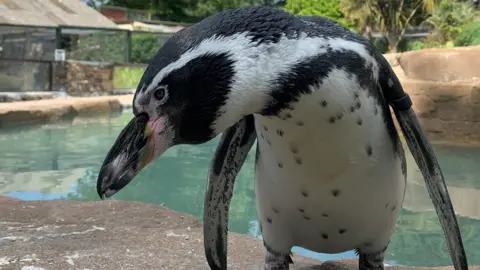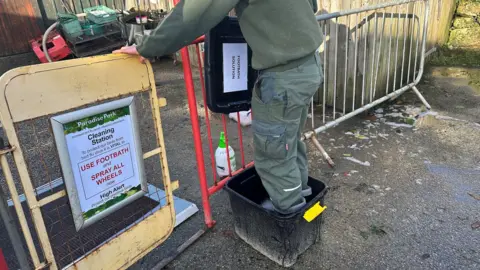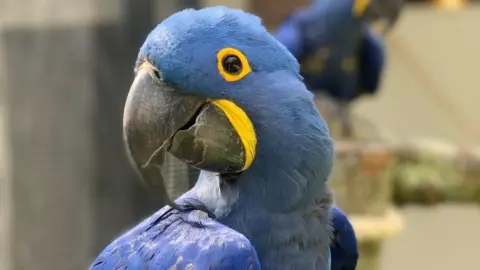Wildlife park takes precautions against bird flu
 BBC
BBCA wildlife sanctuary in Cornwall with more than 1,300 exotic and rare birds is on alert after an outbreak of bird flu was confirmed in a nearby village.
Keepers at Paradise Park in Hayle have introduced strict biosecurity measures to reduce the possibility of the disease infecting the bird collection after the highly pathogenic avian influenza (HPAI) H5N1 was found on a poultry farm near Rosudgeon.
All poultry at the infected farm have been culled and that could be the fate of Paradise Park's collection should bird flu be detected on its site.
Zookeeper Archie Coulthard said: "It's causing quite a lot of stress, but we have a great team here and we have high spirits that we can prevent it."

Paradise Park lies within the 10km (6.2 mile) surveillance zone put in place around the infected farm.
Consequently, biosecurity measures have been put in place, including strict disinfection rules for people entering and leaving the park.
The park's team has moved a group of Caribbean flamingos into a holding pen while a special polytunnel is built for them.
Mr Coulthard said: "We've moved them indoors to make sure they are undercover at all times, so they won't contract any disease."

Most of the 1,300 birds at the park are very rare, he said, including the only three falconets in Europe.
The collection also featured lorikeets, which were extinct in their native Indonesia and a plan had been to send some back to start a new population, he explained.
That plan was now on hold, he added.
Paradise Park owner Nick Reynolds said this latest threat is "really worrying", as was the viability of the attraction after a spate of recent closures of Cornish theme parks.
"I am worried obviously seeing Flambards and Dairyland go.
"My family has been running the park since 1973 and we are not going anywhere. We've just got to look after ourselves, but it is a huge worry for us."
Follow BBC Cornwall on X, Facebook and Instagram. Send your story ideas to [email protected].
